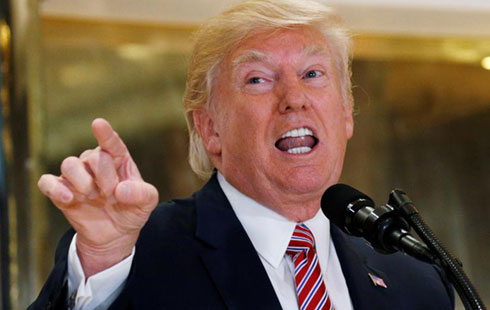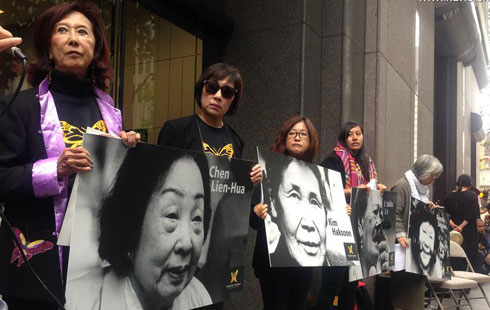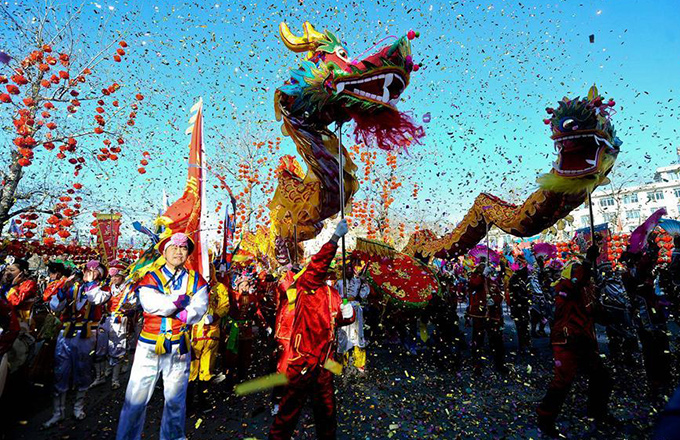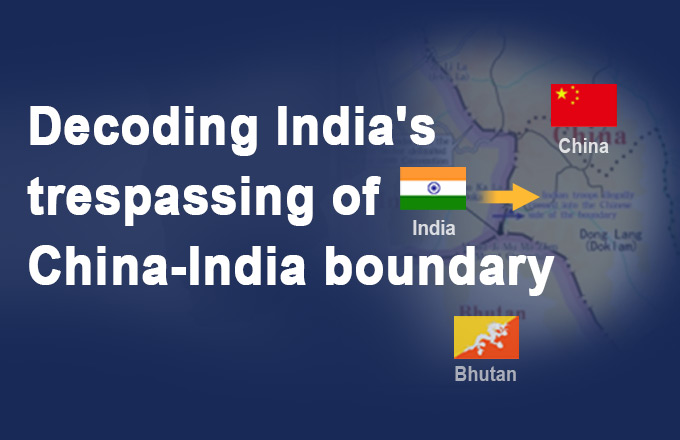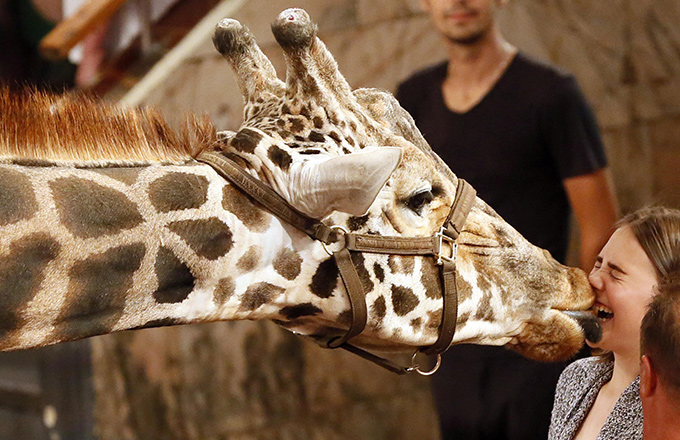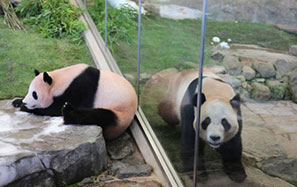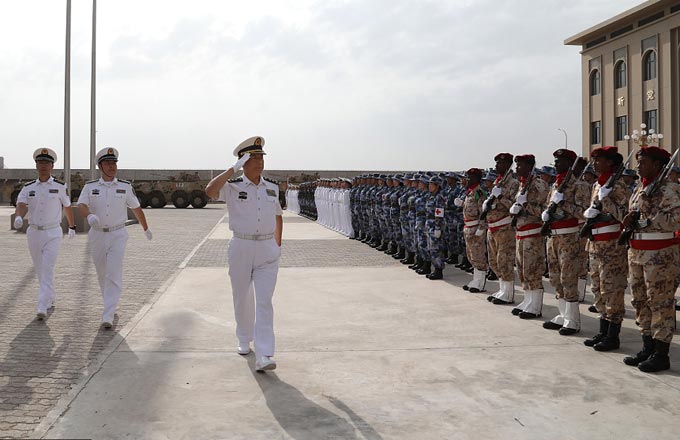Abe's gift to infamous war shrine prompts call for Japan to 'reflect'
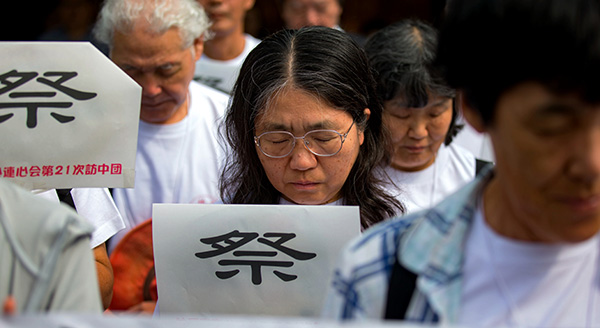 |
|
Members of a Japanese delegation mourn outside the Memorial Hall of the Victims in Nanjing Massacre by Japanese Invaders in Nanjing on Tuesday. YANG BO/CHINA NEWS SERVICE |
China urged Japan to "face up to and deeply reflect upon its history of aggression" after Japanese Prime Minister Shinzo Abe sent a monetary offering to the notorious Yasukuni Shrine on the 72nd anniversary of Japan's surrender in World War II.
"We are firmly opposed to Japan's wrongdoings," Foreign Ministry spokeswoman Hua Chunying said on Tuesday at a daily news conference in Beijing.
The Yasukuni Shrine honors 14 Class-A war criminals from World War II and is regarded as a symbol of past Japanese militarism. It is the fifth consecutive year that Abe sent a ritual offering to the shrine.
"China urges the Japanese side to earnestly face up to and deeply reflect upon its history of aggression, draw a line with the militarism and win trust from its Asian neighbors and the global society with actual deeds," Hua said.
This year also marks the 80th anniversary of Lugou Bridge Incident, which triggered Japan's full-scale invasion of China in 1937; and the Nanjing Massacre, in which 300,000 Chinese were killed by Japanese soldiers.
A documentary aired by the Japanese broadcaster NHK on Sunday disclosed the atrocities of Japan's infamous Unit 731 in Northeast China's Heilongjiang province during World War II.
NHK uncovered a 20-plus-hour voice recording used in a trial, in which former members of the unit confessed to conducting human experiments on Chinese and Soviets to develop biochemical weapons.
"The historical evidence about the Japanese army's monstrous crimes in China are ironclad and undeniable," Hua said, adding that China appreciates the courage of people with vision in Japan to reveal the truth.
"We hope Japan could carefully listen to the cry for justice at home and abroad... and respect the feelings of people in China and other war victim countries in Asia," she said.
Lyu Yaodong, a researcher of Japanese foreign policy at the Chinese Academy of Social Sciences, said that while NHK has done something meaningful, Abe's behavior is a sharp contrast to the documentary.
Zhou Jin contributed to the story.




